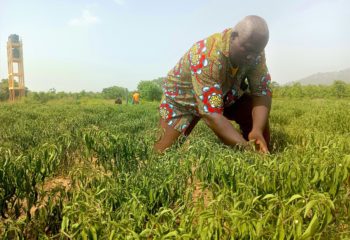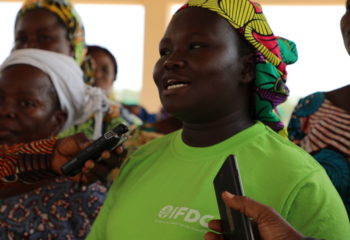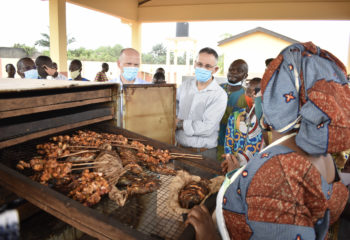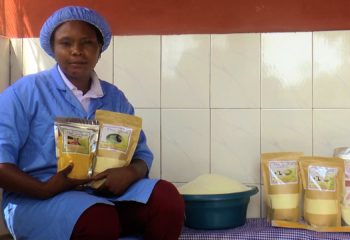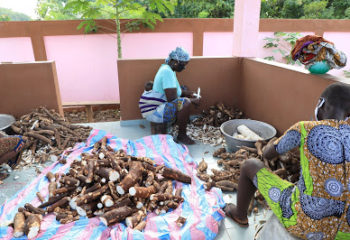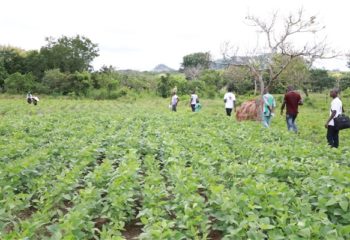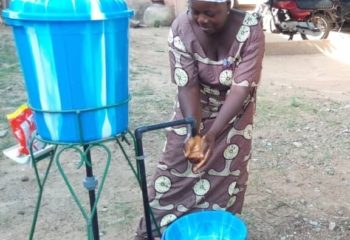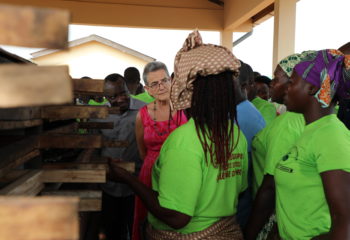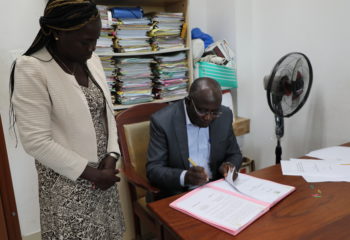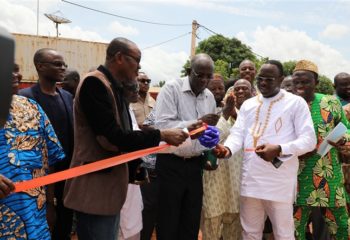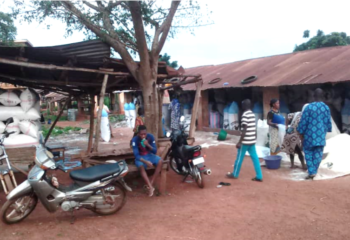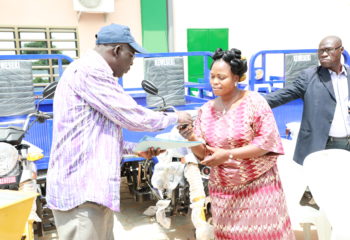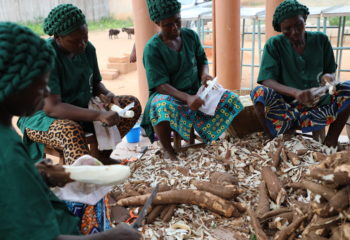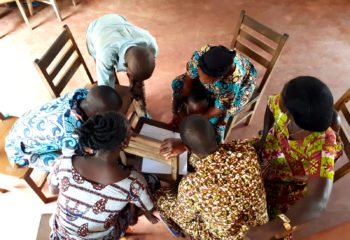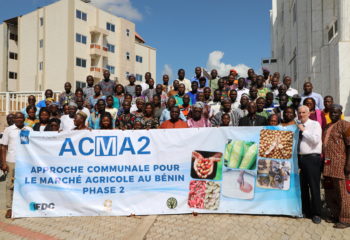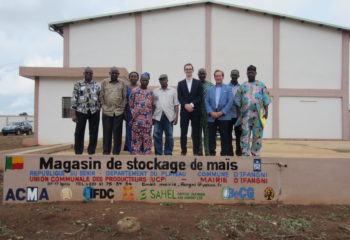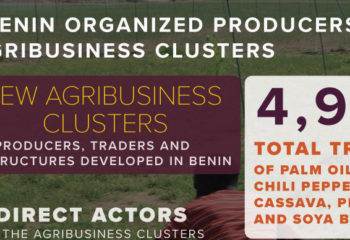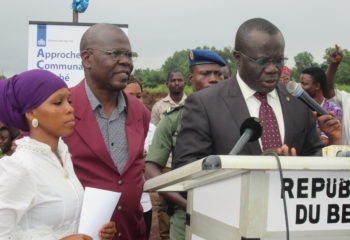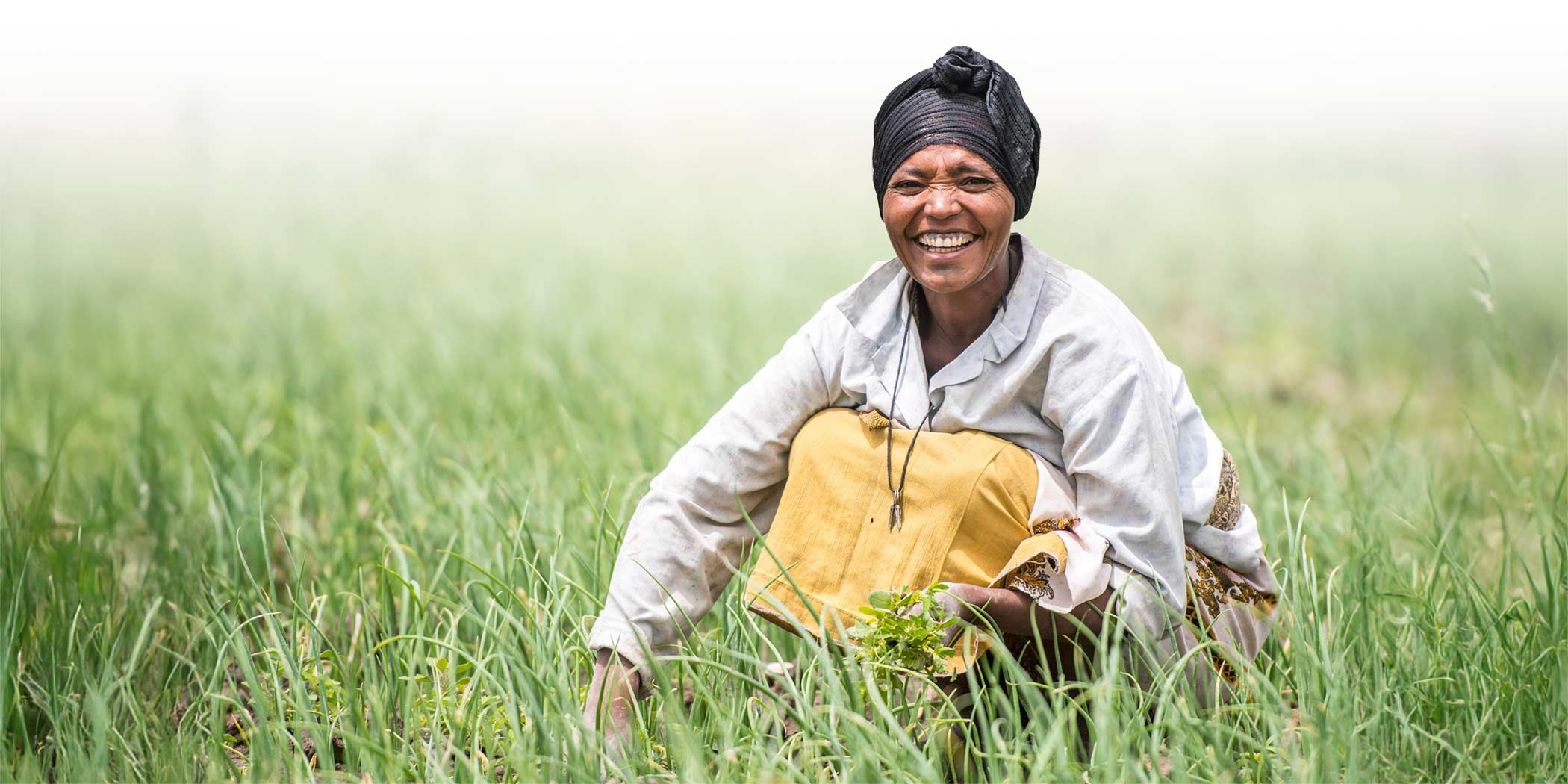
Working from the achievements of the project’s first phase (2013-2017), ACMA2, with funding from the Embassy of the Kingdom of the Netherlands in Benin, will contribute to improving the food and nutritional security of rural populations in Benin through 2022. The core objective is to increase the agricultural incomes of the economic actors at the local level through:
- Increasing trade in agricultural products by organized producers and processors.
- Improving the agricultural productivity of producers and processors.
- Reducing trade barriers for agricultural products within Benin and with neighboring countries, particularly Nigeria.
To ensure a coherent and holistic approach, the project’s implementation strategy is based on five integrated activity areas: access to inputs and agricultural innovations, market access and professionalization, agricultural finance access, information and communications technology (ICT) for agriculture, and public-private partnerships.
The core objective is to increase the agricultural incomes of the economic actors at the local level.
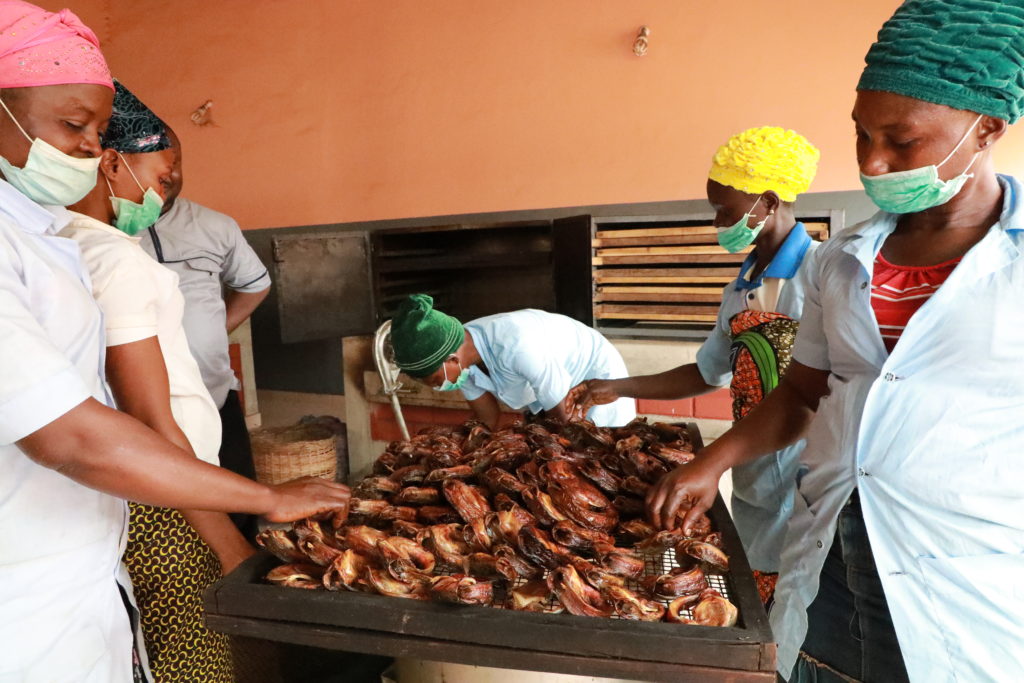
Goals Met
- More than 100,000 farmers, processors, and traders were reached, 57% of whom are women and 33% of whom are youth through 65 agribusiness clusters.
- 44,000 agricultural stakeholders have improved productivity, increasing yields per hectare by at least 48% for corn, 44% for peanuts, 135% for soybeans, and 302% for chili peppers.
- More than 16,000 tons of agricultural products marketed by ABC stakeholders at a value of more than $5,600,000.
- Four partnerships signed to facilitate cross-border trade with two states in Nigeria.
Implementation Strategies
Access to Inputs and Agricultural Innovations
- Support the better-organized supply of quality inputs for producers.
- Facilitate access to information about technical and economic aspects of innovative agricultural practices.
- Support agribusiness cluster stakeholders to manage production and marketing costs.
Market Access and Professionalization
- Support mobilization and management to supply competitive products.
- Facilitate the diversification and formalization of commercial relationships.
- Facilitate transport logistics for marketing.
Access to Agricultural Finance
- Facilitate establishment of input marketing credits, deposit guarantee credits, and working capital loans.
- Inform and train economic actors and their organizations about savings, credit management, and the development of bankable business plans.
- Facilitate, in collaboration with financial institutions, banks, and Global System for Mobile Communications (GSM) operators, the introduction of innovative financial products based on ICT for agriculture.
ICT for Agriculture
- Strengthen market information systems with key data exchanges and connect buyers, sellers, and carriers.
- Provide a distribution channel for training and information sharing on technical topics.
- Facilitate access to finance.
- Develop and implement an ICT component for youth.
Public-Private Partnerships
- Support the establishment and empowerment of consultative frameworks.
- Facilitate advocacy to improve the local business climate.
- Facilitate financing and public-private management of commercial infrastructure.

Results
2022
- Built 28 pieces of infrastructure to facilitate an improvement in production and an increase in commercial exchange by the actors of the targeted value chains.
- Facilitated the marketing of more than 106,000 metric tons (mt) of production by actors at a value of 25 billion CFA francs.
- Beneficiaries of the program received more than 3 billion CFA francs in credit, including more than 168 million CFA francs through digital finance.
- Benefited more than 90,000 actors from various training programs.
2021
- Made good agricultural practices and strategic information accessible on the project’s Information and Communications Technology for Agriculture (ICT4Ag) platform, with nearly 10,900 people (47.35% women and 46.72% young people) subscribing on a fee-for-service basis.
- Supported stakeholders to record sales of more than 83,300 mt of agricultural products at a value of almost U.S. $31.5 million.
- Facilitated loans of more than U.S. $6.3 million, including nearly U.S. $300,000 through digital finance, to support production, processing, and marketing activities.
2020
- Across four departments in Benin, engaged with 80,000 farmers, processors, and traders (40% men, 60% women, and 20% youth) that are organized in 65 agribusiness clusters.
- Assisted beneficiary partners to increase revenues by 20%.
- Introduced good agricultural practices and strategic information accessible on its ICT4Ag platform.
- Facilitated more than U.S. $1.7 million in credit to support farmer activities. U.S. $10 million in agricultural product sales were recorded, bringing the cumulative total for the first three years of the program to more than U.S. $18,000,000.
2019
- 103,619 individuals reached (43% of whom were women and 44% of whom were youth) through the formation of 65 agribusiness clusters (ABCs) involving seven value chains.
- 44,000 agricultural stakeholders trained to improve agricultural productivity. The producers who have benefited from agricultural intensification kits (seeds, fertilizers, herbicides) and who have participated in demonstrations plots have increased yields per hectare by at least 48% for corn, 44% for peanuts, 135% for soybeans, and 302% for chili peppers.
- 28 market infrastructure projects and equipment built to boost sales of agricultural products. 296 business meetings were organized between sellers and buyers. These contributed to more than 16,000 tons of agricultural products marketed by the agribusiness cluster stakeholders at a value of more than $5,600,000.
- A partnership has been signed between the Intercommunal Consultatation Frameworks (CCIC) in Ouémé, Plateau, and Zou and Ogun state, Nigeria. A similar partnership is being prepared between the CCIC in Collines and the Oyo state, Nigeria, facilitating cross-border trade.

